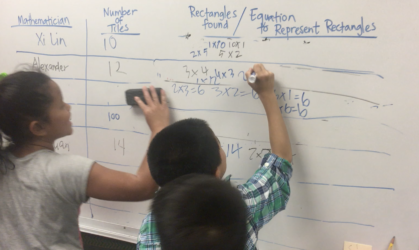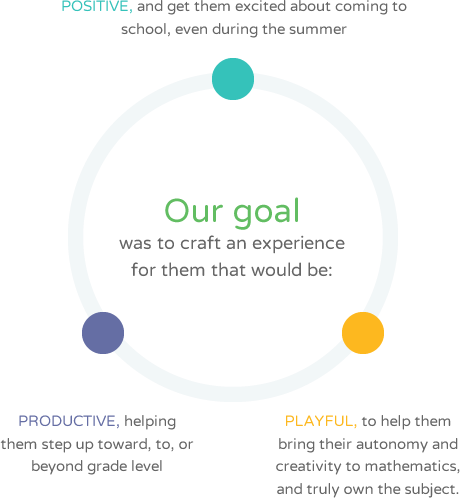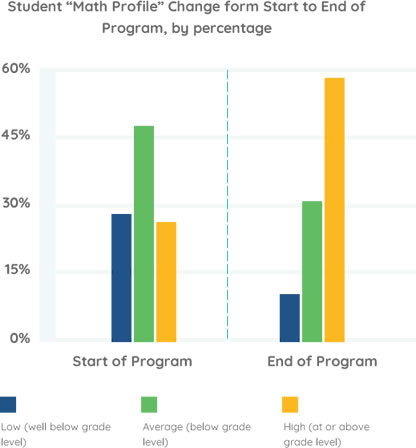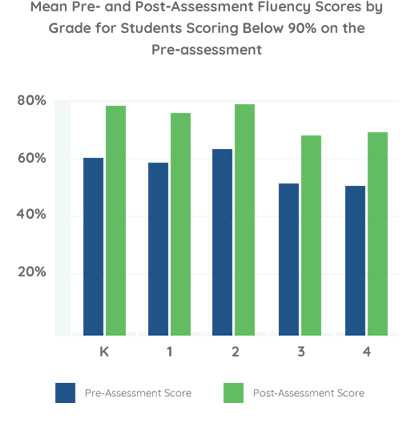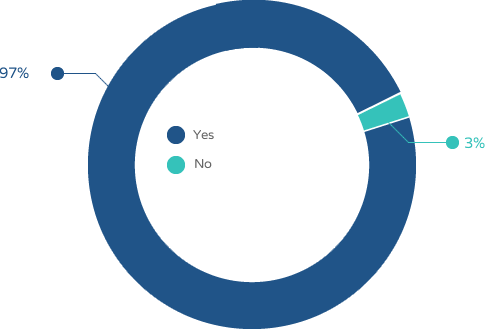Not only was it fun, engaging, and effective for the students, it helped my ongoing dream of encouraging more play-based, gamifying of our math program. To that end, we have more teachers open and receptive to the use of games during this school year. Our instructional coaches... are also on board with this and I AM THRILLED!
...The program did what it was supposed to do for summer intervention AND it helped shift teaching practices for the general school year too in that the value of math games and routines was made evident????

 learn more
learn more
